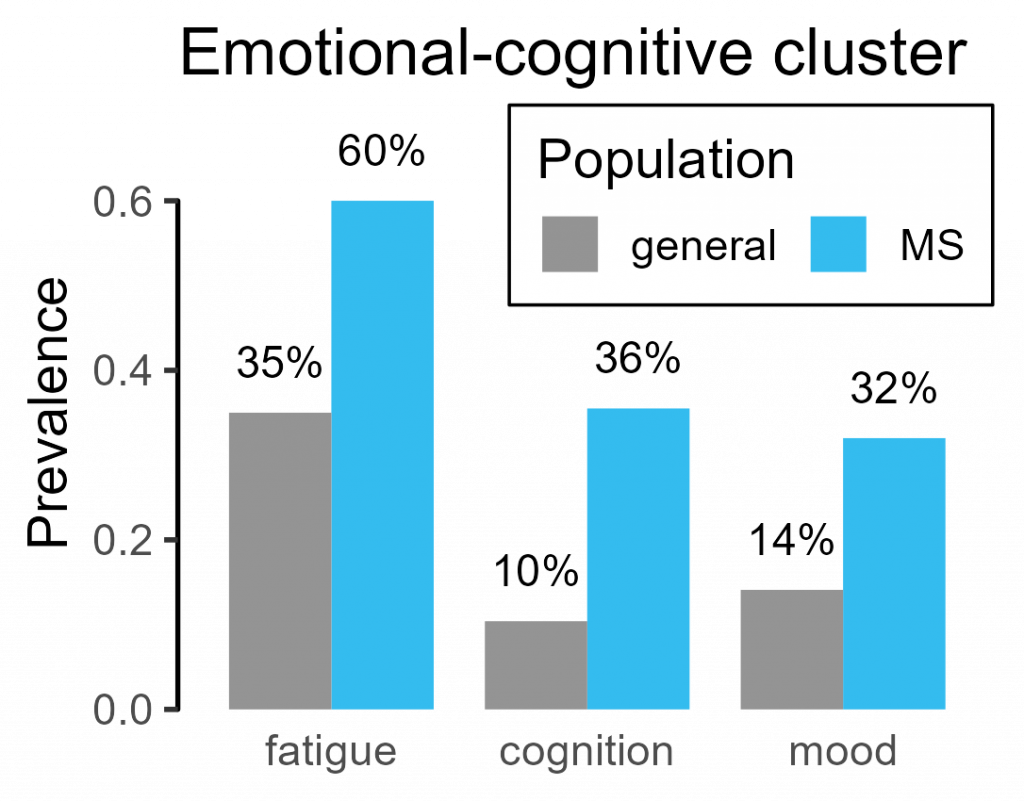Topic
Multiple Sclerosis
Patients with multiple sclerosis often suffer from cognitive and emotional issues although the treatments control relapses well
Setup
Design
R
Realized in R-Statistics, SQL
Cognitive and Emotional Symptoms in Multiple Sclerosis
Using real-world data, we study the cognitive-emotional symptom burden of patients diagnosed with relapsing remitting multiple sclerosis when they escalate treatments.
We investigated how the cognitive-emotional symptom cluster (depression, cognition, fatigue) develops over 24 months in people diagnosed with multiple sclerosis, using retrospective longitudinal observational data. Individuals received treatments as usual during this time. Specifically, we were interested in a subgroup of treatment switchers, who changed from basic treatments to 2nd or 3rd line treatments (treatment escalation). The results showed that validated scores of cognitive processing speed, fatigue, and depression symptoms remained stable also for treatment-escalating patients, meaning it might be that escalation treatment strategies could be able to stabilize or improve the multiple-sclerosis disease course, even in the advanced stages of multiple sclerosis.
You can only access this if you have attended the relevant conference.







